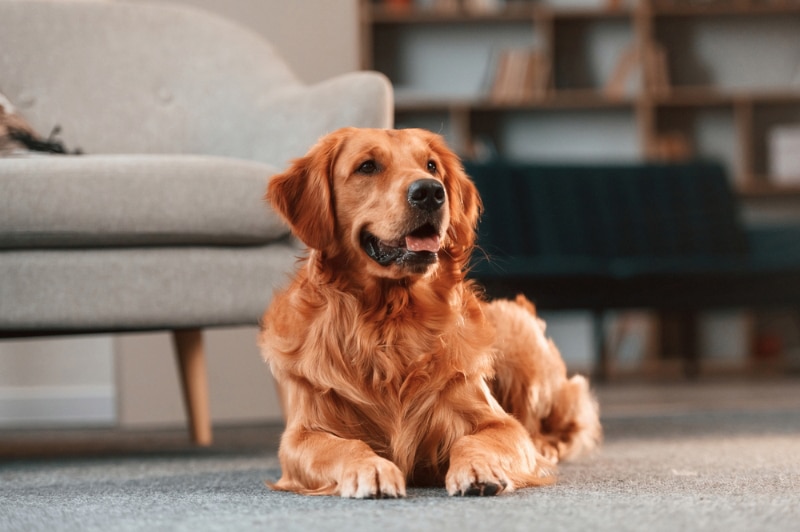
Golden Retrievers are one of the most popular dog breeds globally, known for their friendly, loyal, and intelligent nature. However, to ensure your Golden Retriever grows up to be a well-behaved and sociable companion, proper socialization is crucial. This guide will provide you with essential tips for socializing your Golden Retriever, common challenges you might face, and success stories to inspire you.
The Importance of Early Socialization
Start Early
Begin socializing your Golden Retriever as soon as you bring them home, ideally between 3 to 14 weeks. This is a critical period when puppies are most receptive to new experiences. Early socialization helps your dog develop into a confident and well-adjusted adult.
Positive Experiences
Ensure all interactions are positive and rewarding. Use treats, praise, and affection to reinforce good behavior. Positive experiences build your dog’s confidence and trust, making them more likely to enjoy social interactions.
Gradual Exposure
Introduce your Golden Retriever to new people, dogs, and environments gradually. Start with quieter settings and slowly increase the level of activity and noise. This prevents your dog from feeling overwhelmed and helps them adapt to different situations comfortably.
Key Socialization Tips
Obedience Training
Teach basic commands such as “sit,” “stay,” and “come.” Obedience training helps manage your dog’s behavior in social settings and ensures their safety. A well-trained dog is more likely to engage positively with others.
Regular Socialization
Make socialization a part of your dog’s routine. Regular exposure to different environments, people, and dogs will help maintain their social skills. Visit dog parks, take walks in different neighborhoods, and invite friends over to meet your dog.
Supervision
Always supervise interactions to ensure they remain positive. Be ready to intervene if necessary to prevent negative experiences that could hinder your dog’s social development.
Patience and Consistency
Socialization is an ongoing process that requires patience and consistency. Don’t rush your dog into new situations; instead, allow them to explore at their own pace. Consistent effort over time will yield the best results.
Common Challenges in Socializing Golden Retrievers
Overenthusiastic Behavior
Golden Retrievers are naturally friendly and may struggle to contain their excitement when meeting new people or dogs. Teaching commands like “down” and “off” can help manage this enthusiasm and make interactions more controlled.
Fear and Shyness
Some Golden Retrievers may exhibit fear or shyness towards new environments, people, or dogs. Gradual exposure and positive reinforcement can help them overcome these fears. Be patient and allow your dog to approach new experiences at their own pace.
Aggression
Without proper socialization, Golden Retrievers can exhibit aggressive behavior, especially when feeling threatened or insecure. Early socialization and consistent training can prevent aggression. If aggression persists, consider seeking help from a professional dog trainer.
Lack of Impulse Control
Golden Retrievers are high-energy dogs and may initially struggle with impulse control. Training exercises that focus on self-control, such as “wait” and “leave it,” can help your dog learn to manage their impulses in social settings.
Difficulty in Reading Social Cues
Golden Retrievers may have difficulty reading social cues from other dogs or people. Observing your dog’s interactions and providing gentle guidance can help them understand appropriate social behavior.
Success Stories
Max
Max, a Golden Retriever, was introduced to various environments and people from a young age. This early and consistent socialization led to his confident and friendly demeanor. Max now enjoys trips to the dog park and interacts calmly with both dogs and people.
Bella
Initially, Bella struggled with fear towards new people and environments. Through gradual, positive exposure and the patience of her owner, Bella overcame her fears. Today, she engages enthusiastically with everyone she meets.
Charlie
Charlie, a rescue Golden Retriever, was adopted at two years old and showed signs of aggression towards other dogs. With structured socialization and obedience training, Charlie learned how to interact calmly with other dogs, becoming a well-mannered companion.
Frequently Asked Questions
1. When should I start socializing my Golden Retriever?
The ideal time to start socializing your Golden Retriever is between 3 to 14 weeks. This critical period is when puppies are most receptive to new experiences.
2. How do I ensure positive interactions during socialization?
Use treats, praise, and affection to reinforce good behavior. Gradual exposure to new situations and consistent supervision will help ensure positive interactions.
3. What should I do if my Golden Retriever shows signs of aggression?
If your Golden Retriever exhibits aggressive behavior, early socialization and consistent training are key. If aggression persists, seek help from a professional dog trainer.
4. How can I help my shy or fearful Golden Retriever?
Gradual exposure to new environments, people, and dogs, along with positive reinforcement, can help your shy or fearful Golden Retriever gain confidence. Be patient and allow them to approach new experiences at their own pace.
5. Is socialization a one-time process?
No, socialization is an ongoing process. Regular exposure to different environments, people, and dogs will help maintain your Golden Retriever’s social skills.
Conclusion
Socializing your Golden Retriever is essential for their overall well-being and happiness. By starting early, ensuring positive experiences, and being patient and consistent, you can help your dog become a confident and well-adjusted companion.
If you’re looking for personalized guidance or more tips on socializing your Golden Retriever, consider booking a session with one of our experienced trainers. We’re here to help you and your furry friend every step of the way.
Happy socializing!








